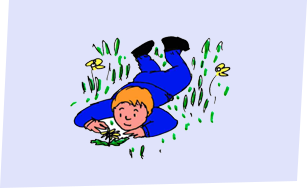Keeping Safe - NSPCC Resources
Speak out, Stay safe!
One of the most important messages we can give to children is to "Speak Out" if they feel sad, worried or scared.
Every child needs to be supported to identify the trusted adults they can speak to, at home or at school, or in the community.
The NSPCC run a very important safety campaign for children called "Speak Out, Stay Safe". We use the resources in school, and there are also useful activities you can use at home too. These fun at-home activities help children learn and remember that:
- Every child has the right to speak out and stay safe.
- Making a child feel sad, scared or worried is never OK and is never their fault.
- If they’re ever worried about anything they should tell an adult they trust.
- Whatever their worry, they can always call Childline on 0800 1111 or visit childline.org.uk/kids.
- It is NOT OK for someone to ask you to keep a secret about something that upsets you.
You can find some great activities to try at home here: https://www.nspcc.org.uk/keeping-children-safe/support-for-parents/safety/activities-safety-kids/
Click on the drop-down tab to try one of the activities:
Learn what’s OK and not OK (NSPCC ACTIVITY)
Keep busy while learning about speaking out and staying safe by playing OK not OK with your children, perfect for 5-11-year-olds.
A great way to start a conversation with your child about what’s OK and not OK, while reminding them of who they can talk to if they are feeling worried or upset.
Have a look together at the statements below – and talk about what they mean. You could print them out, cut them up, write them out or just talk about them.
OK:
- Speaking to a trusted adult if you feel worried or scared.
- Talking to Childline.
- Talking to a trusted adult about your feelings.
- Going to sleep with your favourite teddy bear.
- Falling asleep during story time at home.
Not OK:
- A child being hurt by someone.
- Children being mean to each other.
- Hurting a child’s feelings.
- A child being asked to keep something secret that upsets them.
- A child not being cared for in the right way.
Repeat the messages so they remember them.
You can help your kids remember these by getting active – asking them to move to different sides of the room, house or garden if they think a statement is OK or not OK.
While you are doing this activity, ask your child to think about whether each statement is OK or not OK and start a conversation about why.
Let's Talk PANTS!
Talk PANTS is here to help children understand that they have a right to say no and if they need to speak out about something, someone will listen.
The NSPCC have some important resources you can use with your child, including a great song, here: https://www.nspcc.org.uk/keeping-children-safe/support-for-parents/pants-underwear-rule/
The children need to learn:
privates are private
always remember - your body belongs to you
No one should ever make you do things that make you feel embarrassed or uncomfortable. If someone asks to see, or tries to touch you, underneath your underwear, say 'NO' – and tell someone you trust and like to speak to.
No one has the right to make you do anything that makes you feel uncomfortable. If somebody does make you do something, it is never your fault. Even if the person who has made you feel uncomfortable, has told you it is your fault.
"no" means "no"
talk about secrets that upset you
speak up - someone can help
Talk about stuff that makes you worried or upset. If you ever feel sad, anxious or frightened you should talk to a safe adult who you trust. This doesn't have to be a family member. It can also be a teacher or a friend's parent – or even Childline.
Talking should not get you into trouble, even if somebody has told you it will. If something has happened that makes you feel uncomfortable, it is never your fault.
The NSPCC website has some very useful advice for parents, on a range of topics, on their website here: https://www.nspcc.org.uk/keeping-children-safe/support-for-parents/

